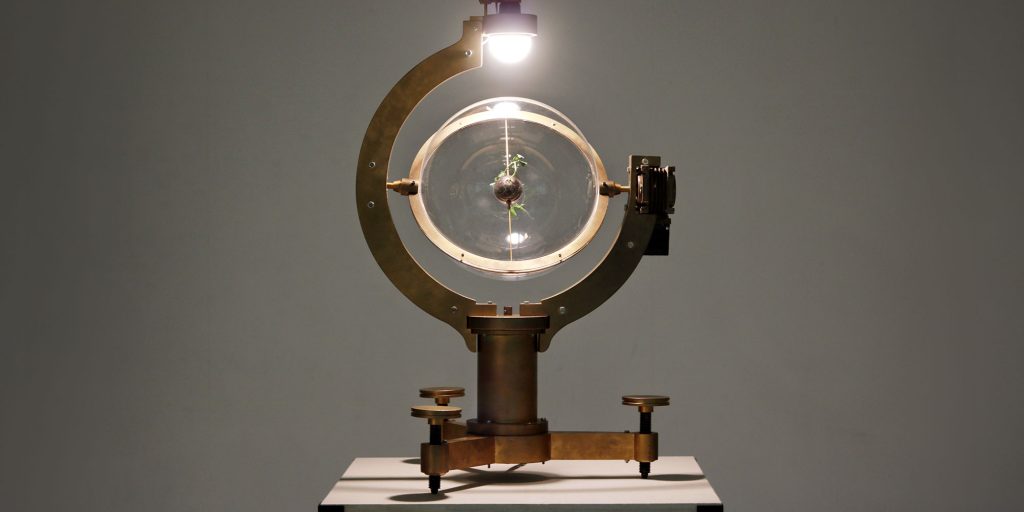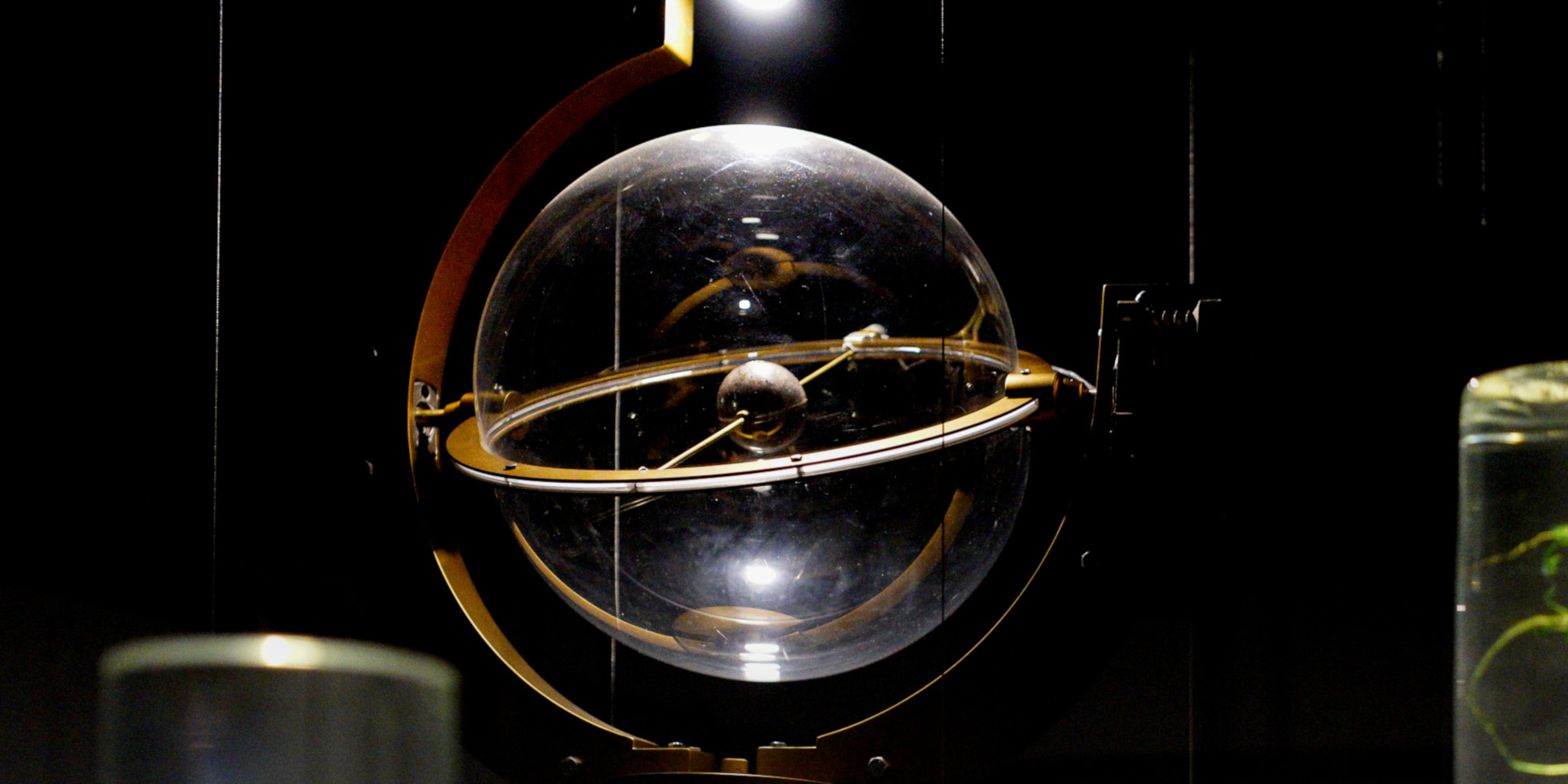Eden in cyber era
From the first era of agriculture until now, human beings have continually intervened in the development of the natural world through all kinds of technologies. We intend to build a mechanical instrument to highlight the overly disruptive effects of technology on the natural world.
To build this machine, we first created a database of plant samples to help us control and manipulate it with 100% accuracy. Based on the model we learned to completely control the speed of growth and the path of stem growth. As soon as the audience draws an outline of the plant stem in a 3D model program, the computer will transmit each piece of information into code to control the movement of the motor for adjusting the position and angle of light and basin, to cultivate the shape and form of the plant to match the drawn model.

By digitalizing all growth factors, our machine is trying to echo the history of domestication of plants that has been taking place since the dawn of agriculture. We need to consider whether using technology to intervene in the natural environment was right, or whether we are now facing paradise lost again while trying to build a neo garden of Eden?
Project Credits
- Exhibition curating, Art history and Aesthetic consulting:
- Supported by Professor Bo-chen Sheng;
- Methodology of Embedded Plant Specimen with Original Color Preservation:
- Supported by Tzu-Yang Lin and Professor Chia-Wei Li in Department of Life Sciences, National Tsing Hua University, Taiwan;
- Sponsored by National Culture and Arts Foundation, Taiwan
Biographies
You-Yang Hu (CN) is a transdisciplinary artist challenging the boundaries of art and technology.
During his undergraduate study in the Department of Communications Design, Shin Chien University, he established the Y2K team in cooperation with Chiao-Chi Chou, an emerging artist. He focused on the “old object interaction design,” combining old items with technology to evoke memories in the experiencer. After the artwork “Response Traces,” which used his grandpa’s old typewriter as the main material and expressed his thoughts about his grandfather, he discovered the possibility that technology causes us to view an object in a new way. Subsequently, with Biosignal series as the core, he created a variety of works to explore a new view of plants.
Currently, he is a graduate student at the Graduate Institute of Networking and Multimedia, National Taiwan University, focusing on Artificial Intelligence and Computational Biology. He creates research-based art that explores new perspectives on machines and creatures.
Chiao-Chi Chou (TW) is an emerging artist. Because of the background of plant research in her family, she is enthusiastic about ecological conservation.
At the Department of Communications Design, Shih Chien University, she began to devote herself to the creation of biological installations. Their characteristics are strong social criticism and reduction of exaggerated metaphors, focusing on the actual experience of the viewer; these traits were highlighted in the cooperation with You-Yang Hu, an artist who is skilled at computer programming and established the Y2K group. Subsequently, with the Biosignal series as the core, she created a variety of works to explore the relationship between human and plants.
One particularly important work in the series is Biosignal_Syn-thesasia, which operates by connecting human nerves with plant occipital cells to create a community experience and enable viewers to rethink the role of plants in human history. This work inspired her to conduct research on the motion equivalence of different species.
The intersection between art and science encouraged her to move forward in the field of life science. Therefore, after graduating from the Department of Communications Design of Shih Chien University with a bachelors degree, she has expanded her vision of biological creation under the guidance of professor Chia-Wei Li from the school of Life Sciences of National Tsing Hua University.


